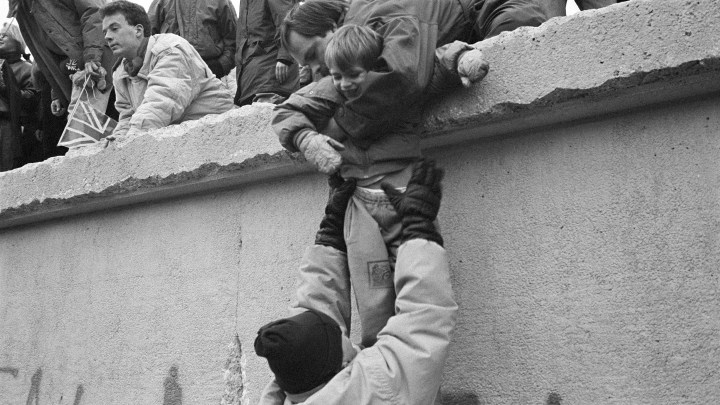
Can we learn something from German investment after reunification?
Can we learn something from German investment after reunification?

By most accounts, the financial cost to reunify Germany after the fall of the Berlin Wall was $2 trillion over 30 years. The money went not only to public works projects, but to providing social security to German citizens.
The disparities between East and West Germany’s economies were stark, with the formerly Communist east lagging far behind the west, which had a social market economy with a strong currency.
On the 30th anniversary of the fall of the Berlin Wall, some economic analysts are contrasting that economic experience with the steep economic division that exist in the U.S. today.
Some areas are falling behind due to an increase in automation, a lack of education and local legislation, according to Katy George, a senior partner at McKinsey & Company.
“People will need to use new skills. They will need to be able to use digital in a new way, to use data in a new way. And in the some of the trailing cities and the trailing rural areas, you see that the the workforce isn’t prepared for that,” George said.
According to Diane Swonk, chief economist at the tax and advisory firm Grant Thornton, that’s why now is the perfect time to invest big in America.
“We’re at a period in time when interest rates are very low. And when interest rates are low, you actually do get a payoff to making long term investments with productivity attached to them. And, let’s face it, we already know how much productivity is being disrupted by how bad our roads and bridges are, let alone, no bullet trains,” she said.
Swonk is of the opinion that America is losing out in a manner that a country with its wealth shouldn’t have.
“The tax cuts we’ve seen over the past 40 years have come out of public education. And that is part of the reason tuition costs have gone up, that is part of the reason kids are only going to school four days a week, that is part of the reason why teachers are going on strike in a time of the best economy we’ve had in, how many years?” Swonk said.
According to some calculations, if the U.S. invested in similar ways that Germany has in the days since reunification, the American government would spend just under $10 trillion over the next 30 years.
“I’d say a least a third of that is now necessary. And that’s just the floor,” Swonk said.
There’s a lot happening in the world. Through it all, Marketplace is here for you.
You rely on Marketplace to break down the world’s events and tell you how it affects you in a fact-based, approachable way. We rely on your financial support to keep making that possible.
Your donation today powers the independent journalism that you rely on. For just $5/month, you can help sustain Marketplace so we can keep reporting on the things that matter to you.


















